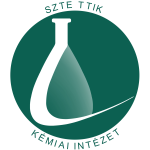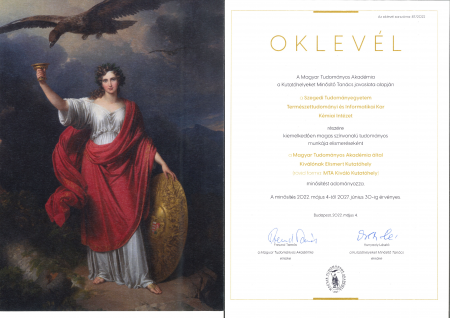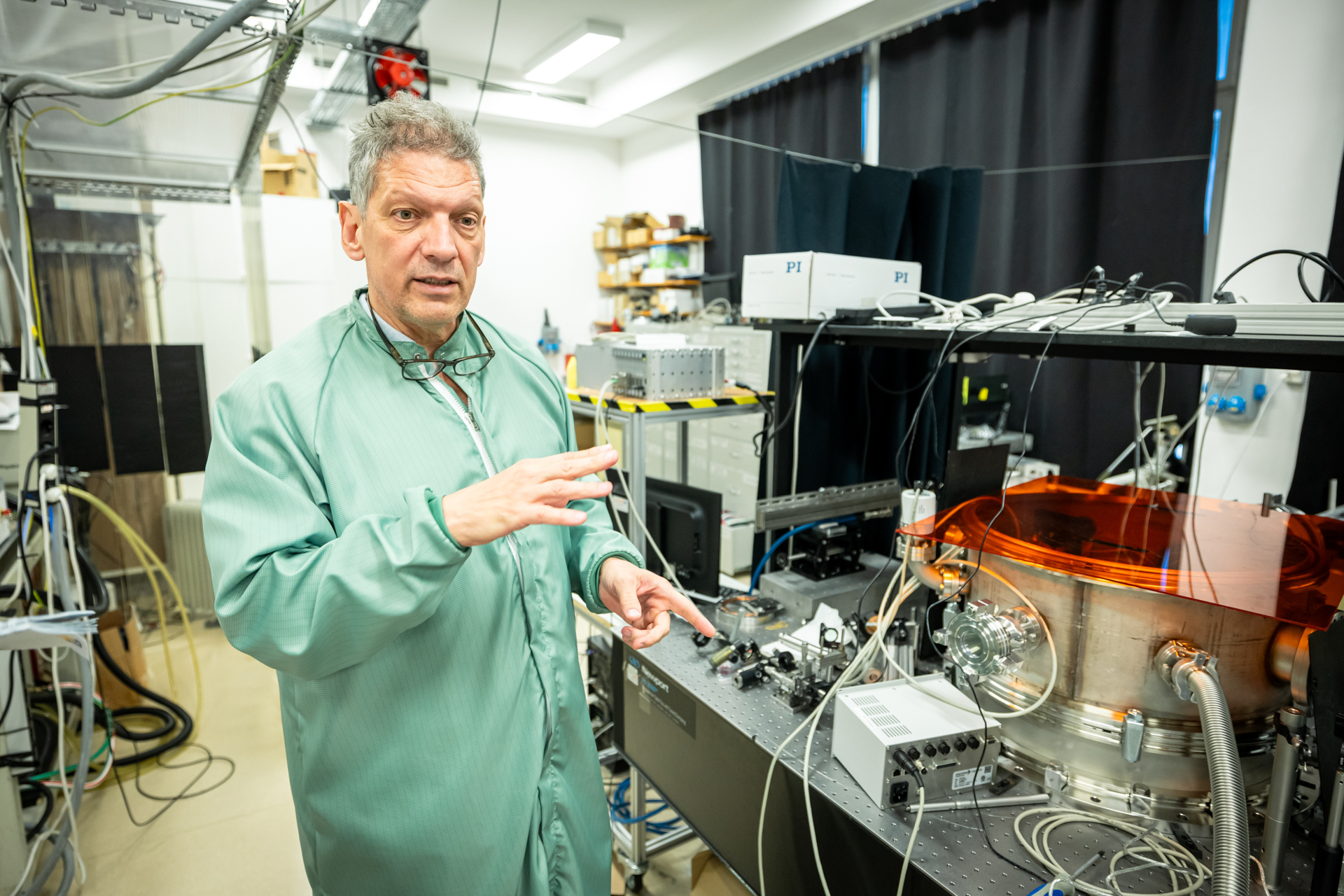
About the Institute of Chemistry
Structure, goals and activities of the Institute of Chemistry
The Institute is organized in 3 departments:
Az Intézet három tanszékre tagolódik, melyek a következők: Applied and Environmental Chemistry, Physical Chemistry and Materials Science and Molecular and Analytical Chemistry. A further important part of the Institute is the glass workshop, that supports both educational and research purposes. The Institute of Chemistry is governed by the Institute Council.,In this, the following representatives vote: the head of the Chemistry Institute, the heads of the 3 departments, the head of the Chemistry Doctoral school, the head of the Environmental Sciences doctoral school, 1-1 further representative for each department, 1 representative for the PhD students, 1 representative for the undergraduate students and 1 representative of the staff members, who are not involved in education.
Beyond the Council, 3 committees aid the operation of the institute: the education committee, the stategic and project application committee and the financial committee. The Council is responsible for all matters related to education, including the requirements for awarding a diploma for the students. The colleagues of the Institute of Chemistry participate in the educational duties of various bachelor (e.g., Chemistry, Chemical engineer, molecular bionics) and master level programs (e.g., Chemistry, Chemistry teacher, Environmental scienecs), and in the postgradual training of students. Beyond this, mandatory chemistry courses are taught for pharmacy students, and to students learning other subjects of natural sciences (e.g., participating in Biology BSc training). Beyond education, intense research work is performed in various fields of chemistry, assuring the national and international recognition of the Institute of Chemistry. This is well-reflected in the quality, and large number of annually published scientific publications and international collaborations.
Contact
Head of the Institute of Chemistry: Ákos Kukovecz, DSc, full professor (e-mail: kakos@chem.u-szeged.hu, Phone: +36 (62) 544-620
Secretary: Ildikó Patakiné Sziveri (e-mail: patakine@chem.u-szeged.hu, Phone: +36 (62) 544-615)
President of the education committee: Ildikó Tóth, PhD assistant professor: (e-mail: ildiko.toth@chem.u-szeged.hu, Phone: +36 (62) 544-623)
Website: Attila Jancsó, PhD associate professor (e-mail: jancso@chem.u-szeged.hu, Phone: +36 (62) 343-753)
Short history of the chemistry education and research in Szeged
The history of chemistry education in Szeged dates back to the legal predecessor of the University of Szeged, the Franz Joseph University, (re-)established in 1872. At this institute the education of chemistry was already very important. Interestingly, "Vegytani Lapok", a Hungarian scientific journal in chemistry was published here.
The education of chemistry at the University of Szeged always adapted to the international trends. This is true for the research activity as well, shown by the large number of internationally recognized researchers who were taught at the University of Szeged. By far the most known of these researchers is Albert Szent-Györgyi, former leader of the Organic and Pharmaceutical Chemistry Deparment, who received the Nobel price in Physiology or Medicine in 1937 "for his discoveries in connection with the biological combustion process with special reference to vitamin C and the catalysis of fumaric acid".






